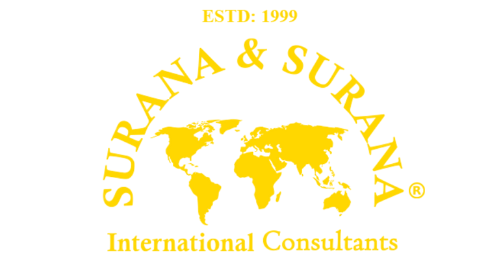The Hon’ble Finance Minister, Smt. Nirmala Sitharaman, first floated the concept of a Social Stock Exchange (“SSE”) as a part of the Budget Speech for the financial year 2019-2020. A Social Stock Exchange is a trading platform for listing of securities by Social Enterprises which includes both Non-Profit Organizations and For-Profit Social Enterprises in order to raise funds from various investors. The Securities and Exchange Board of India (“SEBI”) provided its final assent to introduce SSE as a separate segment in the National Stock Exchange on 19th December, 2022 and in the Bombay Stock Exchange on 27th December, 2022.
The objective behind this novel initiative of introducing SSE as a separate trading platform is to provide easy access to alternative fund-raising structures for Social Enterprises which will in turn increase the amount of funds deployed in fulfillment of social objectives.
The Social Enterprises which are eligible to list their securities on the SSE can be classified into the following two categories: a) Non-Profit Organizations (NPO) b) For- Profit Enterprises having social objectives. In order to establish primacy of social purpose, the Social Enterprises are required to fulfill the eligibility criteria provided under Regulation 292E(2) of the SEBI[Issue of Capital and Disclosure Requirements (ICDR)] (Third Amendment) Regulations, 2022, which are as follows:
- A Social Enterprise is required to be engaged in any of the following activities:
- eradicating hunger, poverty, malnutrition and inequality;
- promoting health care including mental healthcare, sanitation and making available safe drinking water;
- promoting education, employability and livelihoods;
- promoting gender equality, empowerment of women and LGBTQIA+ communities;
- ensuring environmental sustainability, addressing climate change including mitigation and adaptation, forest and wildlife conservation;
- protection of national heritage, art and culture;
- training to promote rural sports, nationally recognized sports, Paralympic sports and Olympic sports;
- supporting incubators of Social Enterprises;
- supporting other platforms that strengthen the non-profit ecosystem in fundraising and capacity building;
- promoting livelihoods for rural and urban poor including enhancing income of small and marginal farmers and workers in the non-farm sector;
- slum area development, affordable housing and other interventions to build sustainable and resilient cities;
- disaster management, including relief, rehabilitation and reconstruction activities;
- promotion of financial inclusion;
- facilitating access to land and property assets for disadvantaged communities;
- bridging the digital divide in internet and mobile phone access, addressing issues of misinformation and data protection; and
- promoting welfare of migrants and displaced persons;
- any other area as identified by SEBI or Government of India from time to time.
- The enterprise shall target the less privileged population segments or regions that have recorded lower performance in the development priorities of the central and state governments;
- The Social Enterprise shall have at least 67% of its activities, qualifying as eligible activities to the target population, to be established through one or more of the following:
- at least 67% of the immediately preceding 3-year average of revenues comes from providing eligible activities to members of the target population;
- at least 67% of the immediately preceding 3-year average of expenditure has been incurred for providing eligible activities to members of the target population;
- Members of the target population to whom the eligible activities have been provided constitute at least 67% of the immediately preceding 3-year average of the total customer base and/or total number of beneficiaries.
- The Regulation also provides that corporate foundations, political or religious organizations or activities, professional or trade associations, infrastructure and housing companies, except affordable housing, shall not be eligible to be identified as a Social Enterprise.
Eligibility for “Non-Profit Organizations” (NPO):
Apart from the conditions enumerated under Regulation 292E, an NPO desirous of listing its securities on a SSE is required to satisfy the following eligibility criteria as specified by SEBI vide its circular dated September 19, 2022:
- The NPO must be in existence for a minimum of three years;
- It must be registered in India as any of the following entities:
- a charitable trust registered under the public trust statute of the relevant state;
- a charitable trust registered under the Societies Registration Act, 1860;
- a charitable trust registered under the Indian Trusts Act, 1882; or
- a company incorporated under section 8 of the Companies Act, 2013.
- The registration certificate of the NPO shall be valid at least for a period of 12 months from the date of seeking listing on the SSE;
- The NPO should possess a registration certificate under section 12A/12AA/12AB of the Income Tax Act, 1961 which shall be valid at least for a period of 12 months from the date of seeking listing on the SSE;
- The NPO must not be subject to any ongoing scrutiny under the Income Tax Act, 1961;
- It should also possess a valid registration under section 80G of the Income Tax Act, 1961;
- The NPO must have a minimum annual spending of INR 50 lakhs and a minimum funding of INR 10 lakhs in the previous financial year.
Mandatory Registration: Every NPO seeking to list its securities through a SSE must register with such stock exchange for the purpose of raising funds. Apart from the eligibility requirements specified by SEBI, the SSE may specify such additional conditions as it deems fit for registration of NPO’s.
Eligibility for “For-Profit Social Enterprises”:
According to Regulation 292A(c) of the SEBI ( ICDR) Regulations, a For-Profit Social Enterprise refers to a company or corporate operating for profit, which qualifies as a Social Enterprise and does not include a company incorporated under section 8 of the Companies Act, 2013. Therefore, any company operating for profit and which satisfies the conditions enumerated under Regulation 292E is eligible to list its securities on a SSE as a Social Enterprise.
Ways of raising funds by Social Enterprises:[1]
A NPO may raise funds on a SSE through the following means:
- Issuance of Zero-Coupon Zero-Principal Instruments to institutional and non-institutional investors whereby, the money raised is a donation and the NPO is not required to pay any interest (zero-coupon) or return the principal amount (zero-principal);
- Donations through Mutual Fund schemes as specified by SEBI; and
- Any other means as may be specified by SEBI.
A For Profit Enterprise may raise funds on a SSE through any of the following ways:
- Issue of Equity Shares on the Main Board, SME Platform or Innovators Growth Platform of the stock exchange.
- Main Board: A main board refers to any recognized stock exchange having nation-wide trading terminals which caters to the needs of established companies to raise funds. The main board prescribes complex eligibility criteria for listing in terms of minimum profit and market capitalization.
- SME Platform: It is a trading platform exclusively established for Small and Medium Enterprises by the National Stock Exchange and the Bombay Stock Exchange with less- stringent eligibility norms to raise funds from a variety of investors.
- Innovators Growth Platform: Innovators Growth Platform is a separate trading platform for young and innovative companies to list their securities by providing them access to a wide pool of investors.
- Issue of Equity Shares to an Alternative Investment Fund including Social Impact Fund;
- Issue of Debt Securities;
- Any other means as may be specified by SEBI.
Ineligibility for raising funds on a Social Stock Exchange:[2]
A Social Enterprise shall not be eligible to register or raise funds through a Social Stock Exchange if:
- The Social Enterprise or any of its promoters or promoter groups, directors, selling shareholders or trustees are debarred from accessing the securities markets;
- Any of the promoters or directors of the Social Enterprise are promoters or directors of a company which is debarred from accessing the securities markets;
- Any of the promoters or directors of the Social Enterprise is a willful defaulter;
- Any of the promoters or directors of the Social Enterprise is a fugitive economic offender; and
- If the Social Enterprise or any of its promoters, promoter groups, directors or trustees have been debarred from carrying its activities by the Ministry of Home Affairs or any other ministry of the Central Government or State Government or Charitable Commissioner or any other statutory body.
The conditions for ineligibility shall not be applicable where the period of debarment is over before the submission of application for listing on the SSE.
Disclosure of Annual Impact Report by Social Enterprises:
The robust framework laid down by SEBI provides for various disclosure requirements to be complied with by Social Enterprises which have listed their securities on any SSE. According to Regulation 19E of the SEBI (Listing Obligations and Disclosure Requirements)(Sixth Amendment), Regulations, 2022, any Social Enterprise which has registered with a SSE or is raising funds through a SSE, is required to submit an Annual Impact Report to the SSE or any stock exchange in the format as specified by SEBI. The Annual Impact Report shall include both the quantitative and qualitative aspects of social impact created by the enterprise and the impact generated by the project for which the funds were raised on a SSE. In the light of the aforesaid, it is amply clear that the introduction of SSE as a trading platform for Social Enterprises to raise funds has rightly paved way for a more concrete approach towards achievement of social welfare objectives in the country. The establishment of SSE is in its nascent stage and the extent of its effective implementation can only be ascertained in due course of time.
[1] Regulation 292G of the SEBI(ICDR) (Third Amendment Regulations), 2022
[2] Regulation 292H of the SEBI(ICDR) (Third Amendment Regulations), 2022



